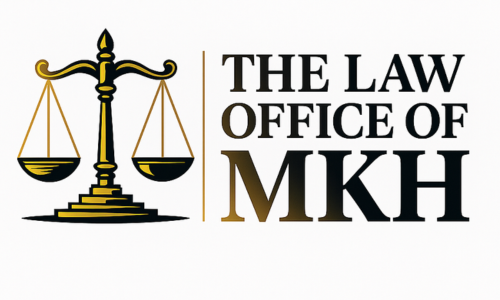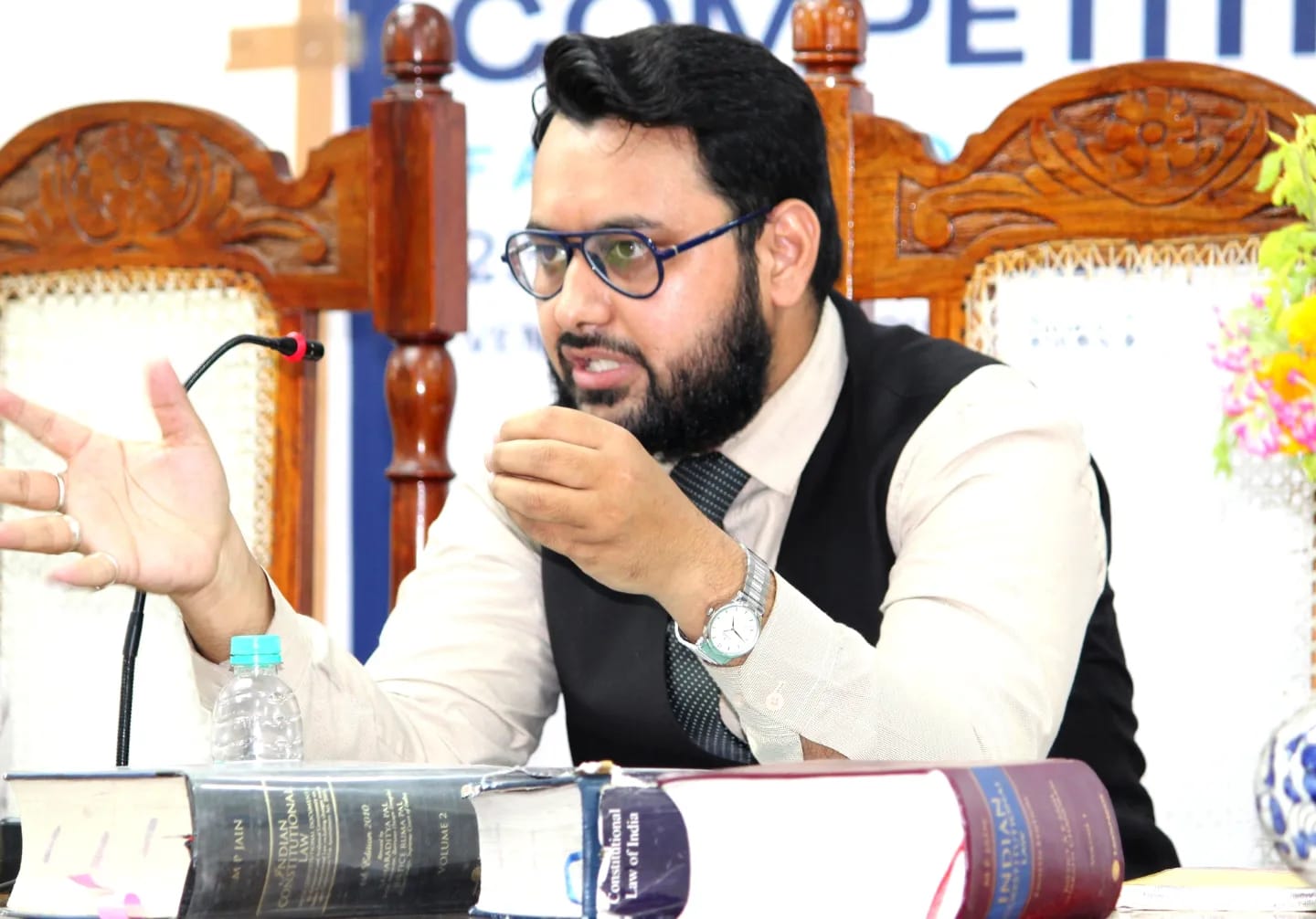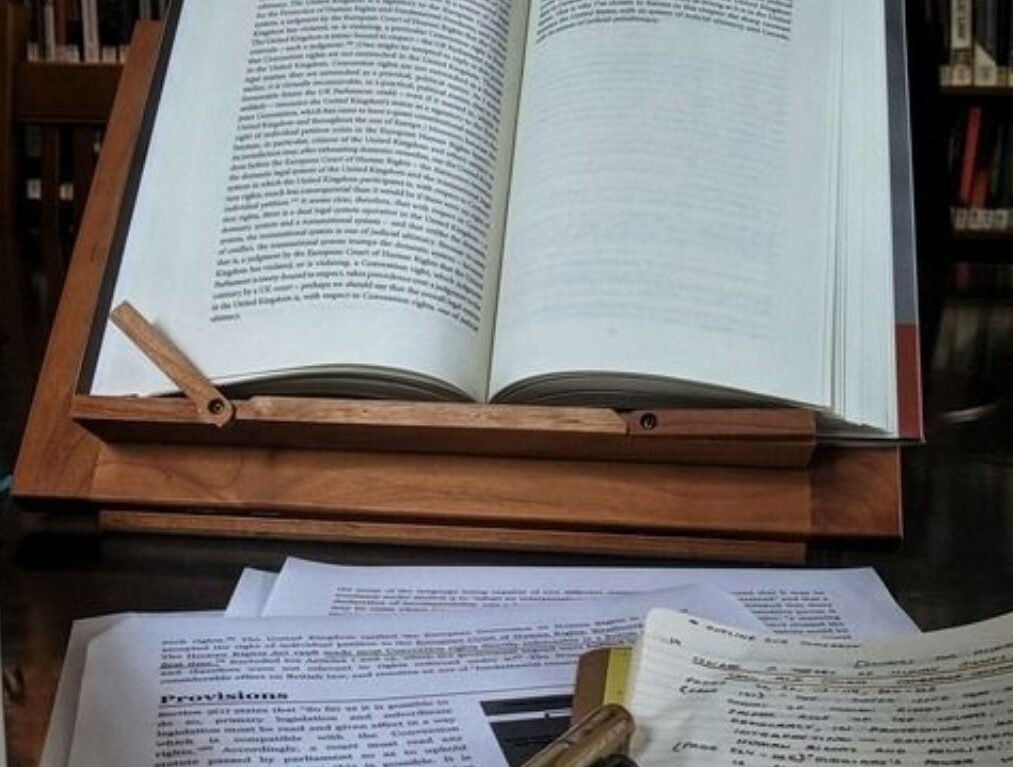Legal Practice & Procedure – 1 Legal Practice & Procedure – 1 My client approached me after he received a summon and a copy of final report filed by police in a criminal complaint that his late father was fighting during his lifetime against the perpetrators for committing fraud and forgery. My client wanted to continue the prosecution despite the final report. The question of law involved was “whether legal heir may substitute the deceased complainant in a criminal complaint and pursue it further.” Case – Chand Devi Daga v. Manju K. Humatani, (2018) 1 SCC 71 Bench – Justice Dr. A.K.Sikri and Justice Ashok Bhushan Research – Even in case of trial of summons case it is not necessary or mandatory that after the death of complainant the complaint is to be rejected, in exercise of the power under proviso to Section 256(1), the Magistrate can proceed with the complaint. More so, the present is a case where offence was alleged under Sections 420, 467, 468, 471, 120-B and 201 read with Section 34 IPC for which procedure for trial of summons case was not applicable and there is no provision in Chapter XIX “Trial of warrant cases by Magistrates” containing a provision that in the event of death of the complainant the complaint is to be rejected. The Magistrate under Section 249 has power to discharge a case where the complainant is absent. The discharge under Section 249, however, is hedged with condition that “the offence may be lawfully compounded or is not a cognizable offence”. Had the 1973 Code intended that in case of death of complainant in a warrant case the complaint is to be rejected, the provision would have indicated any such intention which is clearly absent. Home – The Law Office Of MKH
Legal Practice & Procedure – 2
Legal Practice & Procedure – 2 Legal Practice & Procedure – 2 The other day, I happened to read about – “The Doctrine Of Blue Pencil” in a judgement rendered by the Hon’ble Supreme Court. Sharing the summary of the legal principle which may be quite handy for the fellow legal practitioners out there. Case – Beed District Central Coop. Bank Ltd. v. State of Maharashtra, (2006) 8 SCC 514 Bench – Justice S.B.Sinha & Justice Dalveer Bhandari The “doctrine of blue pencil” was evolved by the English and American courts. Blue pencil doctrine is judicial test/ standard for deciding whether to invalidate the whole contract or only the offending words. Under this standard, only the offending words are invalidated if it would be possible to delete them simply by running a blue pencil through them, as opposed to changing, adding, or rearranging words. This doctrine holds that if courts can render an unreasonable restraint reasonable by scratching out the offensive portions of the covenant, they should do so and then enforce the remainder. Traditionally, the doctrine is applicable only if the covenant in question is applicable, so that the unreasonable portions may be separated. The standard of blue pencil doctrine enables the court to strike parts of a covenant or contract not to compete, in order to make the covenant reasonable.
Legal Practice & Procedure – 3
Legal Practice & Procedure – 3 Legal Practice & Procedure – 3 One of my clients is a co- accused with three other accused in the offence u/s 392, 411 of IPC. The roles of all the accused, including knowledge of the crime given effect is largely varied. This brought me to the occasion of evaluating as to whether and how will the trial transpire if it goes along with the other accused (involving the prime accused). To avoid misjoinder of charges during the trial, I will move an application u/s 218 of CrPC. The broad objective is to avail my client a notice of precise accusation and to save him from being embarrassed in his defence by the confusion which is likely to result from lumping together in a single charge distinct offences and from combining several charges at one trial. On this very notion of law, there’s a conception well explained in the following authority. Case : Nasib Singh v. State of Punjab and Another (2022) 2 Supreme Court Cases 89 Bench : Justice Dr. D.Y.Chandrachud,. Justice Vikram Nath, Justice B.V. Nagarathna Holding a separate trial is the rule and a joint trial is the exception. Section 218 provides that separate trials shall be conducted for distinct offences alleged to be committed by a person. Sections 219-221 provide exceptions to this general rule. If a person falls under these exceptions, then a joint trial for the offences which a person is charged with may be conducted. Similarly, under Section 223, a joint trial may be held for persons charged with different offences if any of the clauses in the provision are separately or on a combination satisfied. Importantly, while applying the principles enunciated in Sections 218-223 on conducting joint and separate trials, the trial court should apply a two-pronged test, namely,(i) whether conducting a joint/separate trial will prejudice the defence of the accused; and/or (ii) whether conducting a joint/separate trial would cause judicial delay. The possibility of conducting a joint trial will have to be determined at the beginning of the trial and not after the trial based on the result of the trial. The appellate court may determine the validity of the argument that there ought to have been a separate/joint trial only based on whether the trial had prejudiced the right of accused or the prosecutrix. A conviction or acquittal of the accused cannot be set aside on the mere ground that there was a possibility of a joint or a separate trial. To set aside the order of conviction or acquittal, it must be proved that the rights of the parties were prejudiced because of the joint or separate trial, as the case may be. Home – The Law Office Of MKH
Legal Practice & Procedure – 4
Legal Practice & Procedure – 4 Legal Practice & Procedure – 4 A police official accused of lodging a false case is not entitled to claim immunity from prosecution without the requisite sanction under Section 197 of the Code of Criminal Procedure. The protection granted by Section 197 CrPC is limited to acts performed in the course of official duties. The Supreme Court has reiterated in a multitude of decisions that any misuse or abuse of powers by a public servant for an unlawful purpose, such as coercing a tutored statement or attempting to procure signatures on a blank sheet of paper; effecting the illegal detention of an accused; participating in a criminal conspiracy to fabricate false documents; conducting a search with the sole aim of harassing and intimidating individuals, amongst others, cannot be protected under the aegis of Section 197 Cr.P.C. Home – The Law Office Of MKH
Legal Practice & Procedure – 5
Legal Practice & Procedure – 5 Legal Practice & Procedure – 5 Legal issue – “When can the plea of ignorance of law be taken as a defence from incurring any liability?” There is a four-prong test wherein for a valid defence, there must exist- (1) an ignorance or unawareness of any law and (2) such ignorance or unawareness must give rise to a corresponding reasonable and legitimate right or claim (3) the existence of such right or claim must be believed bonafide and (4) the purported act sought to be punished must take place on the strength of such right or claim. Hence, it is only when all the four of the above conditions are fulfilled, that the person would be entitled to take a plea of ignorance of law as a defence from incurring any liability. Home – The Law Office Of MKH
Legal Practice & Procedure – 6
Legal Practice & Procedure – 6 Legal Practice & Procedure – 6 It is one thing to have the opportunity of observation, or even the intelligence to observe correctly, but it is still another to be able to retain accurately, for any length of time, what we have once seen or heard, and what is perhaps more difficult is still to be able to describe it intelligibly. Many witnesses have seen one part of a transaction and heard about another part, and later on become confused in their own minds, or perhaps only in their modes of expression, as to what they have seen themselves and what they have heard from others. All witnesses are prone to exaggerate to enlarge or minimize the facts to which they, take oath. Home – The Law Office Of MKH
Legal Practice & Procedure – 7
Legal Practice & Procedure – 7 Legal Practice & Procedure – 7 “Some advocates come into court trusting entirely to a naturally good memory, reinforced by a few pencil marks scattered here and there amongst disordered papers. They have no notes at all, they do not forecast the probable course of the case and they have given it nothing that can be called thought. They assume that as soon as they have got a general idea of the matter to be debated, they can fight it adequately. Never was there a greater mistake, and men who do their work like this, are usually failures throughout their life.” Sir Grimwood Mears, Former Chief Justice, Allahabad High Court Home – The Law Office Of MKH
Legal Practice & Procedure – 8
Legal Practice & Procedure – 8 Legal Practice & Procedure – 8 Lawyers when arguing in court must tailor their note-taking methods to their personal habits and memory capacity, balancing brevity with thoroughness to avoid being either repetitive or superficial. Home – The Law Office Of MKH
Legal Practice & Procedure – 9
Legal Practice & Procedure – 9 Legal Practice & Procedure – 9 The phrase “Waqf by user” refers to land or property that has been treated as waqf over time through continuous public or religious use, even if no formal waqf deed exists. If a piece of land has been used as a mosque, graveyard, or for other religious purposes for a long time — and that use has been uninterrupted and publicly acknowledged — it may be recognised as waqf property “by user”. “Uninterrupted usage” and “Public acknowledgement” are the key words here. Home – The Law Office Of MKH
Legal Practice & Procedure – 10
Legal News Legal Practice & Procedure – 10 No lawyer can know every case detail, so listening carefully is essential. Clients share important information, but some talk too much or miss key points. A good lawyer must patiently hear them out while knowing when to gently guide the conversation. The skill lies in balancing two things: understanding the client’s full story, but also focusing on what matters legally. With experience, lawyers learn when to dig deeper and when to steer the talk. This careful listening builds trust and helps build stronger cases. Great lawyers don’t just hear – they listen with purpose. Home – The Law Office Of MKH










